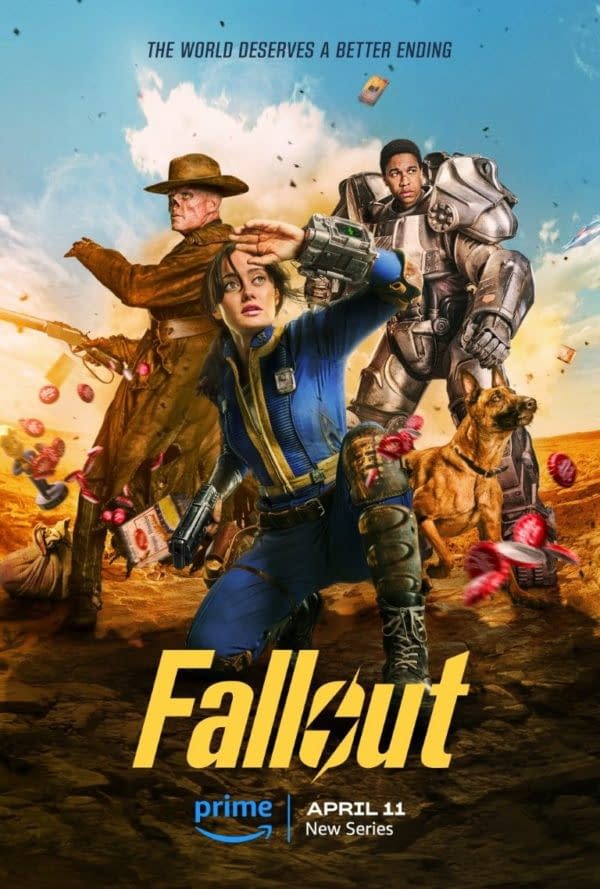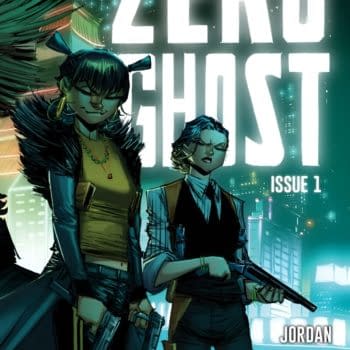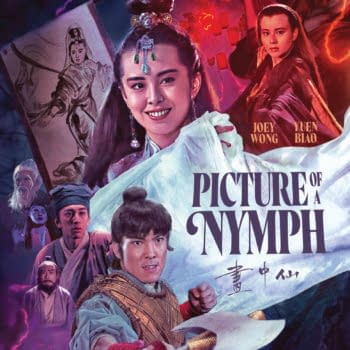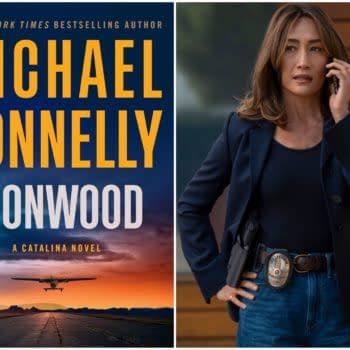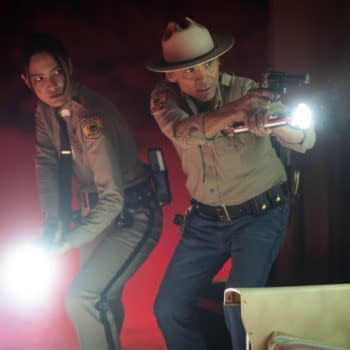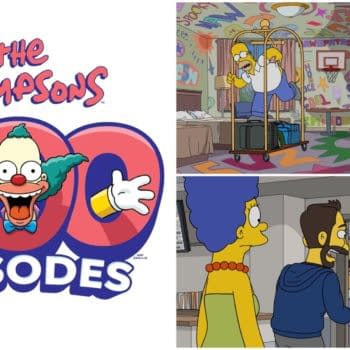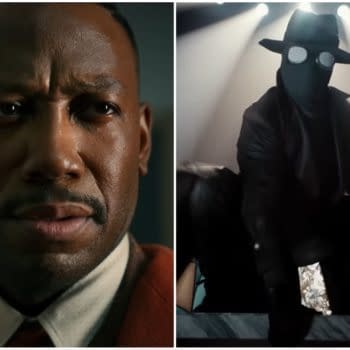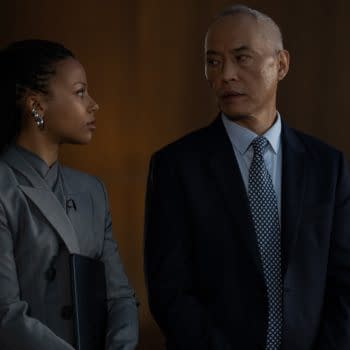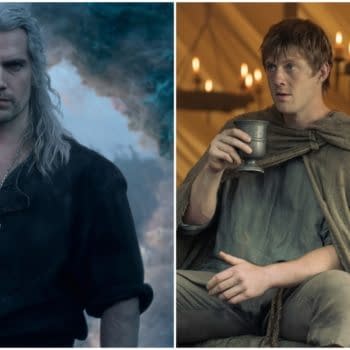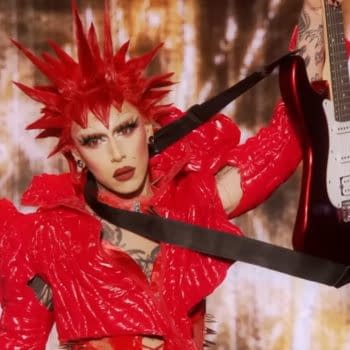Posted in: Amazon Studios, Review, TV | Tagged: Fallout, halo, jonathan nolan, prime video, the last of us, the witcher, video games, videogames, walton goggins
Fallout: "Mad Men" Meets "Mad Max" in Goofy, Hilarious Post-Apocalypse
Fallout is a near-perfect videogame-to-television that recreates the satirical, frequently ridiculous "Mad Men meets Mad Max" vibe perfectly.
Article Summary
- Prime Video's "Fallout" is a satirical, goofy, impactful post-apocalyptic series.
- The show features a mix of dark & light comedy and serious political commentary.
- It stars Ella Purnell, Aaron Moten, and Walton Goggins in a dystopian landscape.
- "Fallout" is praised for staying true to the game's vibe and lore.
Prime Video's Fallout is wild, anarchic, and hilarious, capturing the kind of fun that hasn't been in the last two games. If you've played the games for a long period of time – I've played all of them – it's hard to watch the TV series and take it on its own terms, but I'll try. As a TV show goes, it's a load of demented fun, a mix of goofy, dark slapstick comedy and pathos with an ironic nostalgia for post-War American pop culture. Someone who doesn't know the games asked me to describe it, and I called it "Mad Men meets Mad Max."
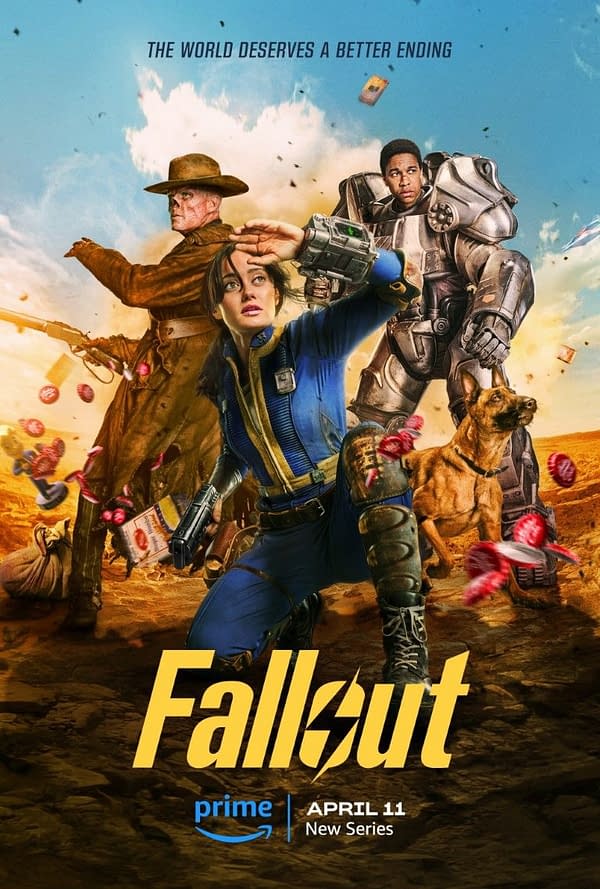
Fallout manages to run on the same appeal the video game series does, on the vibe that's a satirical pastiche of every Cold War pulp Science Fiction Pop Culture trope ever. It walks the tightrope between gleeful slapstick splattery gore and moments of pathos and political commentary on American exceptionalism and rampant capitalism. But it wouldn't work unless it can stand alone as a TV series that can be watched without knowing any of the games. It becomes a primer for the entire franchise, a promotion that might make you want to play the games.
The Good, The Mean, And the Not-So-Sure
Lucy (Ella Purnell), Maximus (Aaron Moten), and The Ghoul (Walton Goggins) are three points of morality that make them each a protagonist in Fallout. Lucy grew up protected and privileged in one of the many vaults that were bunkers built over two hundred years ago when the bombs fell, raised to believe in her mission to restore America to its Eisenhower-era glory that the country lived through when the bombs fell. Maximus is an orphan from a destroyed city adopted and raised by the fascistic paramilitary group The Brotherhood of Steel who's not completely indoctrinated in their beliefs as he's more preoccupied with his own survival than serving a cause. The Ghoul is a radiation-mutated man who survived the nukes and now wanders the wasteland as a ruthless bounty hunter haunted by memories of his life before the bombs dropped.
The three main characters are archetypal main characters in the world of Fallout. Lucy is a true believer in goodness and virtue and is forced to reckon with a world where those qualities are scoffed at on a good day and a reason to get killed on a bad day. The Ghoul is an antihero, a grizzled survivor pursuing his own agenda. Maximus is caught in between them – terrified and feckless but with a desire to do good and find a purpose in the world. Lucy thinks she has a purpose but finds that sorely tested and possibly altered. Both Lucy and Maximus' are coming-of-age stories in the post-apocalypse. The Ghoul is on a journey that might lead to a redemption he doesn't think he deserves. Each of them has a mission that ends up bringing them together as reluctant allies. Ella Purnell gets to show her underrated comedy chops in Lucy's desperate need to stay positive and chipper as everything keeps going to hell around her. Aaron Moten gets to subvert a character that might have been written as a stoical hero but is instead unpredictable and chaotic, where you never know what he's going to decide next. Walton Goggins walks away with the show as a ghoul version of The Man with No Name, channeling every cowboy gunslinger who gets the coolest action scenes in the show.
The "Fallout" of Good Videogame Adaptations
There's a reason Fallout is now being hailed as the best adaptation of a video game next to The Last of Us. They faithfully tell the stories of the games without imposing new and extraneous ideas into them that run counter to the original vibe. That's why fans consider the adaptations of The Witcher and Halo terrible. The Last of Us sticks to the game story with minor changes. Fallout creates a new story set in the franchise's lore. In interviews, Jonathan Nolan would talk endlessly about how much he loves the Fallout game and what its themes and ideas are, just like how Craig Mazin talked about The Last of Us. Interviews with the showrunners of Halo and The Witcher just have them talking about how clever they are in coming up with boring new ideas and mawkish post-therapy emotionality like they think they're smarter than the original games' writers.
The big difference between The Last of Us and Fallout is the vibe. The Last of Us has a more generic and grim theme: "In the post-apocalypse, people are good or bad for reasons," which The Walking Dead has been pushing for over 10 years. Fallout embellishes it with, "In the post-apocalypse, people are good or bad for reasons, but everyone is a goofy weirdo getting their freak flag on, including YOU!"
The series Fallout is currently streaming on Prime Video.
